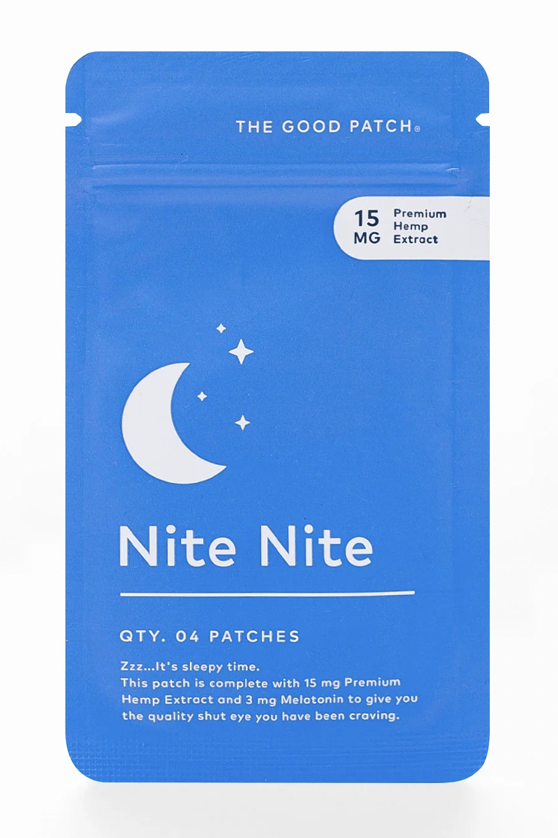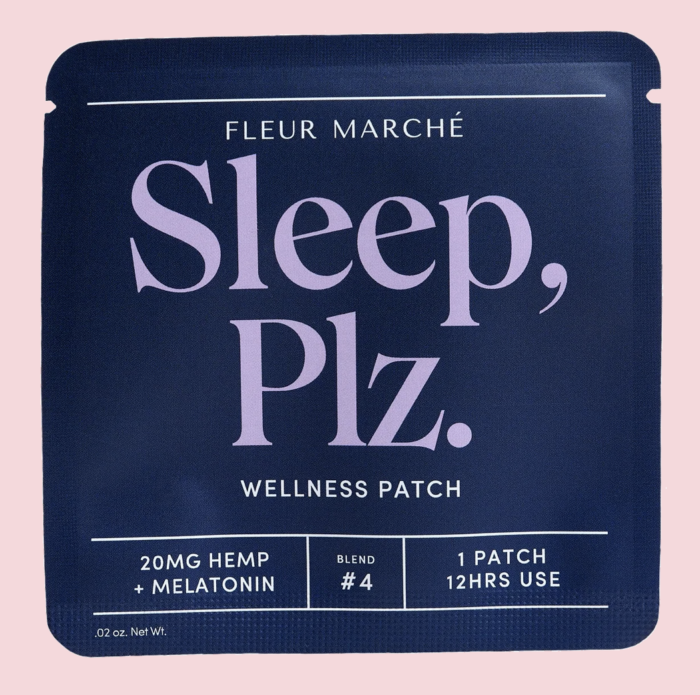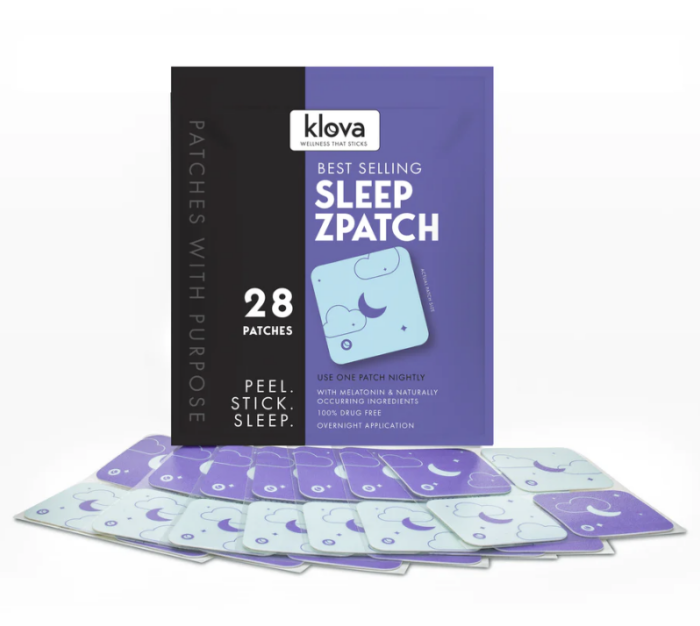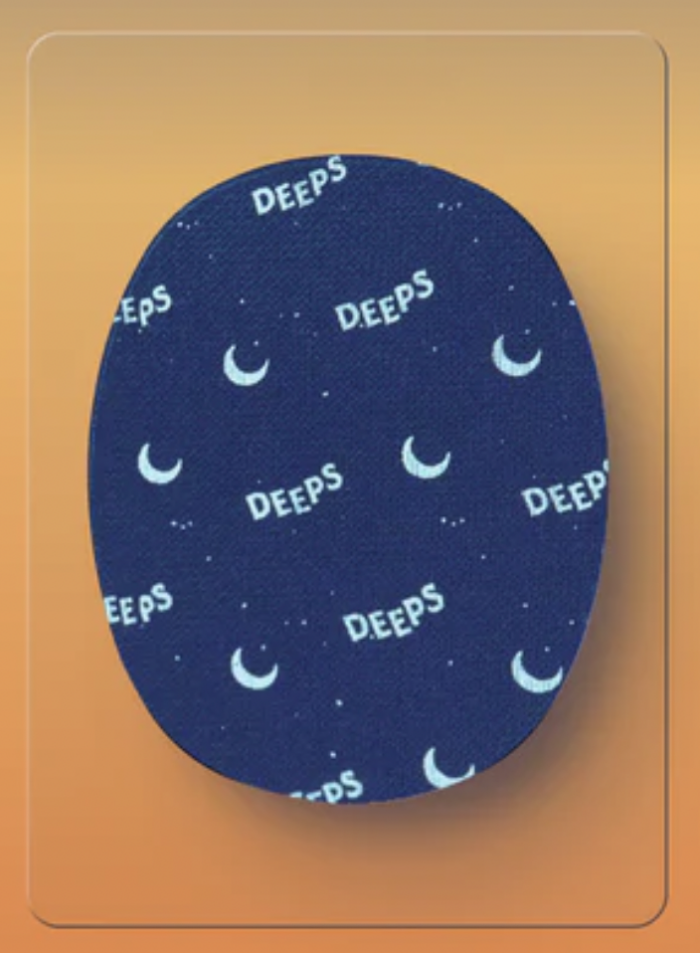Remember the ’ol saying “there’s an app for that”? Well, these days, there’s a patch for that.
We’re talking about sticky patches that deliver ingredients through the skin, à la nicotine and birth control patches. Now, you can patch up for everything from calm to energy to…the one that intrigued us…sleep. Sleep and mental health are bedfellows, so to speak, because when you have sleep probs, you’re at a higher risk of developing a mental health disorder.
As someone with a history of insomnia, I’m always on the hunt for the latest sleep tips. One recently hyped “fix,” melatonin gummies, didn’t work for me—in fact, they kept me awake (ugh).
So I approached sleep patches with equal doses of hope and skepticism. They look like giant stickers, infused with a mix of supposed sleep-promoting ingredients from lavender to CBD.
What do these ingredients actually do for slumber? Psychologist Shelby Harris, Psy.D., who specializes in behavioral sleep medicine and author of The Women’s Guide to Overcoming Insomnia, gave us a quick tutorial:
- Ashwagandha valerian: aids in stress reduction
- Lavender: offers calming effects
- Valerian root: potential mild sedative
- Hemp: potential anxiety reduction
- Melatonin: regulates sleep-wake cycles
For some of these, there are clinical studies proving as much. Ashwagandha extract, for example, had a small but significant effect on overall sleep in a 2021 study published in PLoS One. And while melatonin may not be my friend, another study found that transdermal melatonin sleep patches effectively helped people get their ZZZs, even during the daytime. Study participants were able to spend more time in stage 2 and REM sleep, stages they typically missed out on most.
GOTTA READ: Weighted Blankets in COLORS! (No “Mental Illness Gray”)
Then there’s lavender, perhaps the most widely touted natural sleep aid. According to a Journal of Alternative and Complementary Medicine study, college students with sleep issues had better quality sleep when they wore a lavender inhalation patch on their chest at night.
When Sleep Patches and Mental Health Meds Don’t Mix
Before we get into our sleep-patch picks, however, it’s important to know about potential probs. Some ingredients in the patches could interact negatively with certain mental health medications, says psychiatrist Kristin Gill, M.D., medical director of behavioral health at Elevance Health.
Speak with your psychiatrist or mental health provider before trying anything new, even an over-the-counter supplement. But here are a few warnings to consider:
- If you take antidepressants: “It’s recommended to avoid the use of valerian if you’re taking an antidepressant medication, such as an SSRI or an SNRI, as it could potentially lead to harmful medication interactions,” says Dr. Gill.
- If you take benzodiazepines: “Ashwagandha valerian, passionflower, and lemon balm should be avoided if you are taking benzodiazepines for panic disorder or anxiety,” says Dr. Gill. “These ingredients may worsen the sedative effect of benzodiazepines and cause excessive sleepiness.” (A.k.a. Not the good kind of sleep.) Benzos include alprazolam (Xanax), clonazepam (Klonopin), diazepam (Valium), and lorazepam (Ativan).
It’s also best to stay away from cannabidiol, or CBD, if you take antidepressants, benzodiazepines, or antipsychotics. CBD could interfere with your meds and make them less effective. Be careful with hemp, too: Its oil comes from a cannabis plant.
Beyond mental health meds, ashwagandha is not recommended for those who are pregnant or breastfeeding, as it contains compounds that increase the risk of miscarriage. It’s also not a good mix for people who take meds for their thyroid, blood sugar, or blood pressure, says Dr. Gill.
Where to Start with Sleep Patches
Want to try some patch work? A little housekeeping first: The four patches below all have sustained-release technology, which means the ingredients are designed to slowly seep into the skin overnight. But don’t wear them for more than 12 hours, don’t put them on skin that’s damaged or irritated, and—it bears repeating—check with your doctor before slapping one on.

Here, you get a clear patch infused with a calming combo of hemp and melatonin. The brand recommends sticking the patch on your inner forearm for the best effects.
“Sleep patches are often placed over vein-y parts of the skin, like wrists or ankles, because these areas have higher blood flow, allowing for better absorption of active ingredients and potentially faster effects,” says Dr. Harris, a clinical associate professor of neurology and psychiatry at Albert Einstein College of Medicine and director of sleep health at Sleepopolis. “Enhanced blood circulation helps the ingredients reach their target sites in the body.”
Fleur Marche – Sleep, Plz Wellness Patch, $22

The chicest of the bunch, if you require chicness in a sleep patch (we judge not). The navy square combines melatonin with plant extracts from hemp.
According to a study in The Permanente Journal, CBD (which hemp counts as) helped people with poor sleep within the first month, though its effects fluctuated after that. The participants also reported lower anxiety.
Klova Sleep ZPatch, $35

Got sensitive skin? These are dermatologist-approved and made with three layers—backing, ingredient, and contact—which allows the patch to stay put through the night without irritating the skin.
With ashwagandha, l-theanine, melatonin, gaba, valerian, lavender oil, and passion flower, these are a (relative) steal at $1 per patch,
Deeps Sleep Patches, $25

If you’re looking to target a particular concern, this could be your brand. They have options for two of the most annoying sleep issues—the Fall Asleep Patch and Stay Asleep Patch—created in tandem with sleep doctors and scientists.
Fall Asleep contains lavender, valerian root, and melatonin. Stay Asleep mixes magnesium with melatonin and ashwagandha.
“Ingredients like melatonin, lavender, and valerian root can aid in falling asleep, while magnesium and herbal extracts may contribute to staying asleep,” confirms Dr. Harris. Of course, she adds, individual responses can vary.
All in all, sleep patches aren’t the most cost-effective solution. But if you’re one of the many humans who consider a good night’s sleep priceless, some brands offer a subscription option where you can save a few bucks. If sleep issues continue, talk to a mental health or sleep pro to see what’s up and whether other alternatives may work better. Now go to bed!
Aeschbach D, Lockyer BJ, Dijk DJ, et al. Use of Transdermal Melatonin Delivery to Improve Sleep Maintenance During Daytime. Clinical Pharmacology & Therapeutics. July 15, 2009.
Shannon S, Lewis N, Lee H, Hughes S. Cannabidiol in Anxiety and Sleep: A Large Case Series. The Permanente Journal. January 7, 2019.
Lillehei AS, Halcón LL, Savik K, Reis R. Effect of Inhaled Lavender and Sleep Hygiene on Self-Reported Sleep Issues: A Randomized Controlled Trial. Journal of Alternative and Complementary Medicine. July 1, 2015.
Kocis P, Vrana K. Delta-9-Tetrahydrocannabinol and Cannabidiol Drug-Drug Interactions. Medical Cannabis and Cannabinoids. August 2020.
Pacheco D, Singh A. CBD as a Sleep Aid. Sleep Foundation. August 8, 2023.
Ashwagandha. MedlinePlus. August 2, 2022.






